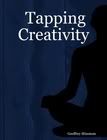Hi, friends. Been awhile since my last blog post and I thank those of you who waited patiently for my return. While my delay was mainly because of personal reasons, often delays are caused by a much more common and dreaded problem: Writer's Block.
While my book, Tapping Creativity is completely dedicated to helping writers find new ways to stay productive an conquer writer's block, in this post we are going to look at 10 quick and easy ways to work around writer's block now.- Meditate. Often, writer's block is a fueled by overthinking. We want so much for the muse to return, that we start focusing more on our technique and skills and less time on letting a story happen. So go someplace quiet and empty your head. Don't think about anything. Clean the slate. Do it a few times if you have to.
- Make Something Else. In my experience, writing is just one of several creative outlets that writers pursue. Some are also painters, graphic designers, or musicians. I am a musician. When the writing is not happening, the music usually is. In fact, some of you may know me as scarecrow in other online venues.
- Lean On Other Writers. Writer's groups exist for a reason. Other writer's understand our plight intimately and can share ways to help us get pass the block. Whether it's a technique or reviewing a work in progress and helping you see where you are trying to go ... even when you can't see it yourself.
- Just Do It. Ever notice writer's block is rarely a problem when you have a hard deadline. It's because you can't wait for inspiration, you have to write regardless. So why wait for someone else to set a deadline for you? Do it yourself.
- Get Inspired. Sometime's writer's block is manifests in a lack of inspiration. After all, it's not like you don't want to write, you just can't up with something to write about. Instead of waiting it out, go to the artists who inspire you. A couple of hours with Wallace Stevens, Diego Rivera, Bjork, or Frank Lloyd Wright and I can usually start rocking the keyboard again.
- Work Out. Writer's block is stressful, just like any situation when you can't bring about the results you desire. As mentioned earlier, though, writer's block can also be self-perpetuating where the focus shifts to the block itself. So go run, bike, walk, swim, play hoops, whatever. It will alleviate the stress and help make the block easier to break.
- Think Inside The Box. Sometimes it's the seemingly endless ways to get started that is daunting. So slim it down. Force yourself to work within certain parameters. Limit your sentence to 7 words. Implement a rhyme scheme. Whatever you do, just force a new element into the equation. It will change the way you approach the work, and a little change is just what you need.
- Big Picture. Getting bogged down in details can bring your writing to screeching halt. You know how it is: you want to get from Point A to Point B, but you can't figure it out. Don't sweat it. Put sections/scenes into big picture blocks. Put a few notes about each on index cards, then organize them. This forces you to back out of "details" mode and look at your work for the bog picture. Looking at the forest instead of the trees is often enough to break the block.
- The Remix. Who says remixing is just for musicians? Try taking something you have already written and switch it up. Play with sentence length, tone, chronology, voice. If it is narrative, make it a poem. This forces you to evaluate your writing and see what new things you can bring to it. It will get tehe creative juices flowing again.
- Ventriliquism. As writers, our voice is shaped by the voices of writers whom we have grown to love. These are voices we know well. If you are stuck on a part, then, ask yourself: How would Hemingway write this; how would Rushdie write this; etc. By using the voice of a writer you love, you may find the voice you are searching for to keep a piece moving.
Hope this helps.


